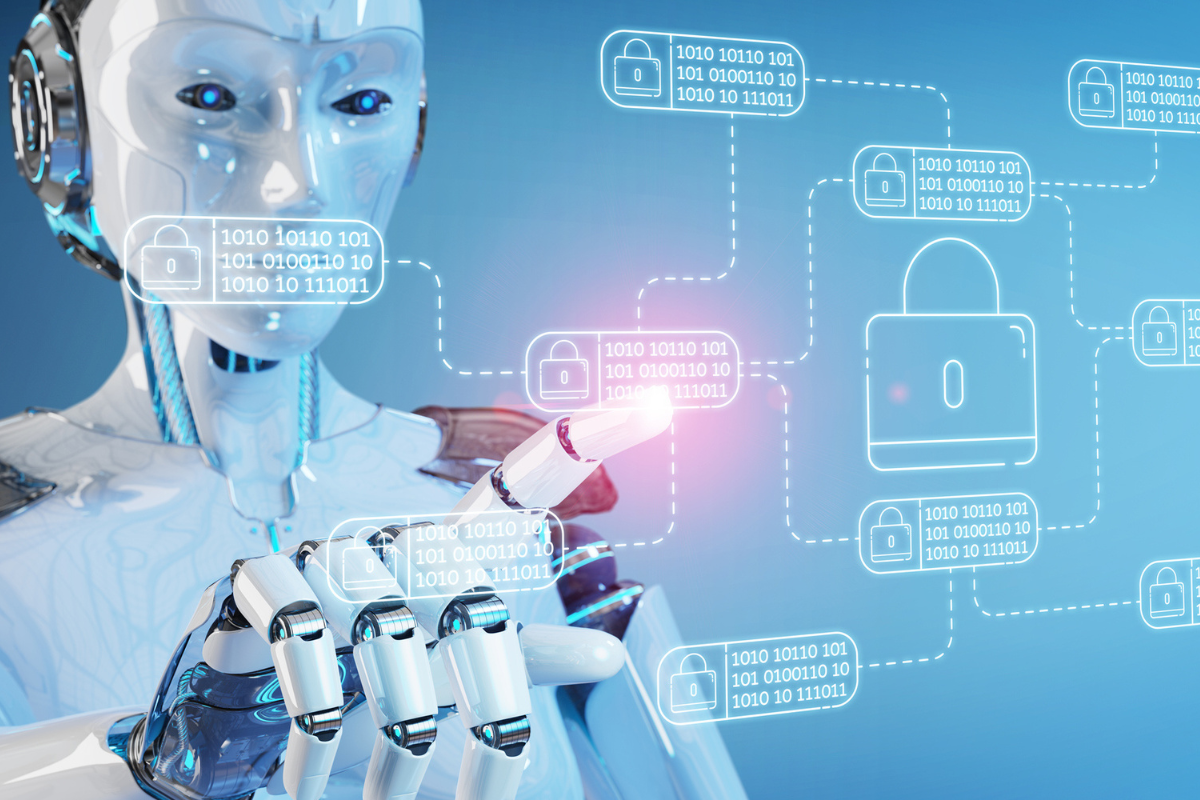Why We Need to Talk About AI and Privacy
AI is getting smarter every day. It powers voice assistants, health apps, recommendation systems, and more.
But here’s the catch—AI needs your data to work well. The more personal information it gets, the better it performs.
That sounds helpful. But it also raises a big concern: what happens to all that data?
That’s where data privacy in AI comes in. It’s about making sure your personal details don’t end up in the wrong hands or used in ways you didn’t agree to.
What Is Data Privacy in AI, Really?
Simply put, it’s about protecting your personal data when it’s being used by AI.
Things like:
- Your voice recordings
- Location data
- Medical info
- What you watch, search, or shop for
AI systems learn from these things—but they shouldn’t cross the line.
Why AI Loves Data (And Needs It)
Think of AI like a student. It learns by studying lots of examples.
So if it’s a medical AI, it looks at patient records. If it’s a shopping AI, it tracks what people buy. More data means better predictions.
Example:
A fitness app might use your heart rate, sleep schedule, and step count to give advice. But without good privacy measures, that info could be exposed or sold.
Privacy vs Progress: Can We Have Both?

There’s a real struggle between making AI smarter and keeping our data safe.
Here’s what that tension looks like:
| If We Share Data… | But Also Risk… |
| Better health diagnosis | Health records being leaked |
| Smarter recommendations | Losing control over choices |
| Faster services | Getting tracked everywhere |
So, can we have the benefits of AI without giving up our privacy? The good news: yes, we can—but it takes effort.
What Can Go Wrong?
When companies don’t protect data properly, it can lead to:
- Personal info leaks
- Scams and identity theft
- Loss of trust
- Huge fines and legal trouble
Real-World Example:
Remember the Facebook–Cambridge Analytica scandal? Millions of users’ data was used without their permission to manipulate election ads. That caused a global privacy outcry.
How AI Can Respect Privacy
Here’s how companies and developers are working to keep your data safer:
1. Anonymizing Data
They remove names or personal details so no one can tell who the data belongs to.
Think: changing “Priya Sharma, Delhi” to just “User123.”
2. Learning Without Sending Your Data
This is called federated learning. Your device learns locally, and only the result is shared—not your actual data.
Google uses this in its Android keyboard.
3. Adding ‘Noise’ to Confuse Hackers
Some systems add random tweaks to data so it’s harder to trace back to real people.
But the AI still learns patterns accurately.
4. Collecting Less Data
If an app doesn’t need your contacts, it shouldn’t ask. Smart developers now only take what’s truly necessary.
5. Getting Your Permission First
This one’s basic but powerful—you should always be told what’s being collected and why. You deserve to choose.
Good Guys: Companies Getting It Right
- Apple: Many of its features run on your device, not the cloud.
- DuckDuckGo: Offers private search, no tracking.
- Mozilla: Builds privacy-first products like Firefox.
They’re showing it’s possible to build smart tools without invading your privacy.
Privacy Laws That Have Your Back
Governments are stepping up with rules like:
- GDPR (Europe): Gives users more control and transparency.
- CCPA (California): Lets users know what’s collected and how to opt out.
- India’s DPDP Bill: Focuses on consent, fairness, and clear data handling.
These laws help keep companies accountable.
What Developers Should Do
If you’re building AI tools, here’s what matters:
- Be transparent—tell users what’s going on.
- Don’t collect more than you need.
- Use encrypted storage.
- Let people delete their data if they want.
- Build in privacy from the start—not later.
What You Can Do as a User
Even as a regular user, you can protect yourself:
- Read app permissions (don’t just click “accept”).
- Use private browsers like Brave or Firefox.
- Ask questions if something feels sketchy.
- Support tools that respect your privacy.
Final Take: Data Privacy in AI Isn’t Optional
As AI becomes a bigger part of our lives, data privacy isn’t just a tech issue—it’s a human one.
We don’t have to choose between progress and privacy. We can have both.
But it takes awareness, ethical design, and strong rules to make sure technology works for people—not against them.
Frequently Asked Questions About Data Privacy in AI

1. What does “data privacy in AI” really mean?
It means keeping your personal information safe when AI systems use it to learn, decide, or make suggestions. The goal is to protect your identity, give you control over your data, and stop companies from misusing it.
2. Why does AI need personal data in the first place?
AI learns by studying examples—and many of those examples come from people like you. Whether it’s voice commands, medical info, or search history, AI uses this data to improve how it responds and adapts.
3. Is my data safe when I use AI-powered apps?
It depends. Some companies do a great job protecting your data. Others don’t. That’s why reading privacy policies, checking permissions, and choosing privacy-focused tools is so important.
4. Can I still use AI without sharing all my data?
Yes, you can. Look for apps that use on-device learning, ask for permission clearly, and don’t collect more data than they need. Some tools even let you opt out of data tracking entirely.
5. What’s the risk if my data isn’t protected?
If your personal data is mishandled, it could be leaked, sold, or used without your consent. This could lead to spam, scams, identity theft, or just a feeling of being watched online.
6. What are companies doing to protect our privacy?
Some are:
- Removing names or sensitive info from data (called anonymization)
- Training AI directly on your device (so your data stays local)
- Asking for your consent upfront
- Following laws like GDPR or CCPA
These steps help limit the risks.
7. What is federated learning?
It’s a method where AI learns directly on your phone or laptop, not by uploading your personal data to a central server. It keeps your private info safer because it never leaves your device.
8. Can AI make decisions that hurt people if privacy is ignored?
Yes. If AI has biased or incomplete data—or invades privacy—it can lead to unfair decisions in areas like hiring, healthcare, or lending. That’s why ethical design matters.
9. What laws protect my data?
Some major ones are:
- GDPR (in Europe)
- CCPA (in California)
- India’s DPDP Bill
These give you rights like seeing what data is collected, asking for it to be deleted, and saying “no” to tracking.
10. What can I do to protect myself?
You can:
- Read app permissions before you install
- Use private browsers like DuckDuckGo or Brave
- Avoid giving apps access they don’t need
- Speak up if a service misuses your data
- Choose tech that values your privacy
